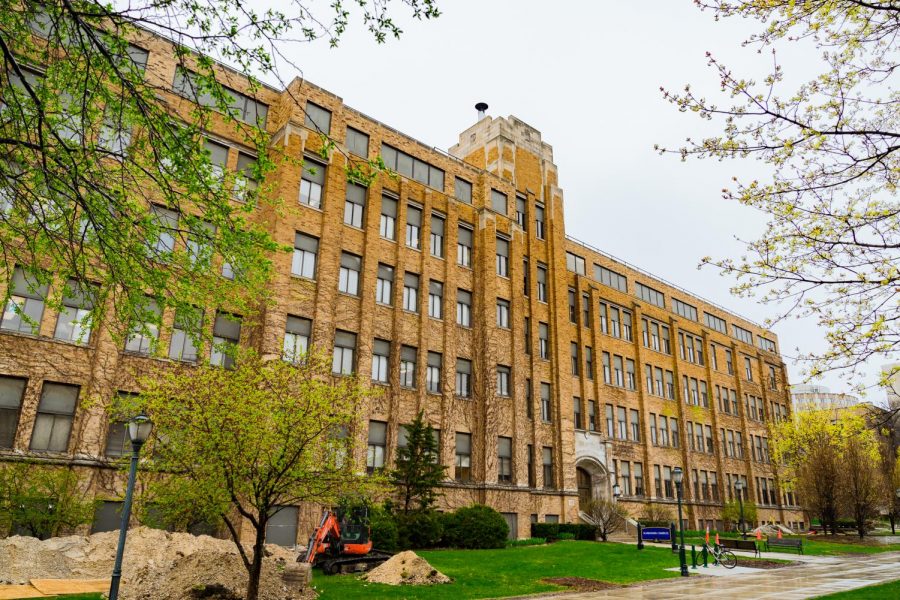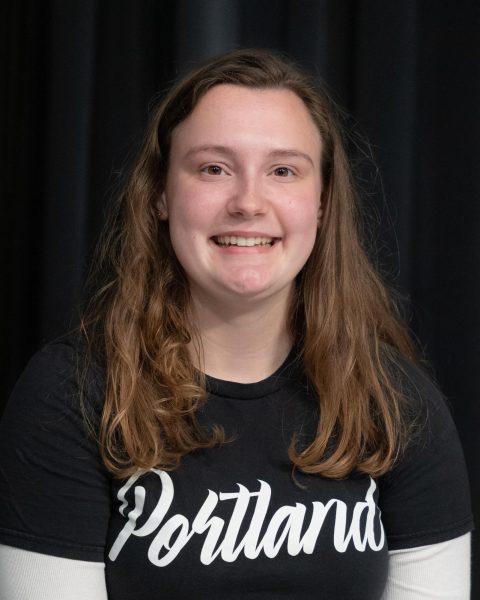There is currently a concept paper that seeks to dissolve the current College of Education and replace it with a School of Education and Public Service that would be housed under the College of Arts & Sciences. Here’s what to know:
What is a concept paper?
The concept paper is the first step in the university’s policy on approving a new school or college. It outlines what the new school or college would look like and the rationale for the change. This is the first time a school, or college, has gone through the process.
“This isn’t a proposal yet. This is the earliest phase in a shared governance discernment process – consulting a range of stakeholders including faculty, staff, students, and alumni,” Vice Provost for Academic Affairs and Student Success John Su said in an email.
Marquette community members are invited to give their feedback on the proposal up until Jan. 30, 2024 through a survey on the Academic Senate’s website.
How would a School of Education and Public Service be structured?
The internal structure would be comprised of three main leaders: an executive director, chair for undergraduate teacher education and educational studies and chair for graduate studies and faculty operations.
Why does the college want to move to a school?
Associate Dean for the College of Education Leigh Van De Kieboom said that there are three primary reasons in favor of a School of Education and Public Service: external visibility, growing programs and existing relationships.
“I feel like we’ve been working on this for a long time thinking about our structure, thinking about areas in our programs that are growing and areas like teacher education, it’s in decline across the country. We’ve just been thinking about ways to be more efficient, and then capitalize on the many relationships that we have across campus. We’ve probably been working at it since 2019.”
External visibility
“One reason that we want to be a school is to maintain an external visibility to work with state, local and national governing bodies and our peers in other higher ed institutions, K-12 schools, around the educational policy that’s made, particularly at the state level,” Van De Kieboom said.
Part of this would be achieved through the executive director position, who would be a faculty member.
“Because folks in the community, Catholic schools in the area, other institutions of higher ed, nonprofits, community organizations, they wonder ‘Who am I going to contact?’ This is why we’re proposing this structure where it’s an executive director whose external facing so that the person in that role can make sure that they have high visibility in the community,” Van De Kieboom said.
Growing programs
Five years ago, an educational studies major was approved. This major is for those who are interested in education in settings outside of a traditional school. This includes places such as Discovery World or the Urban Ecology Center.
On the graduate side, Van De Kieboom said enrollment in the Educational Leadership Program is up by 68%. The Public Service master’s program, which is currently housed in the Center for Teaching and Learning, would also be under the School of Education and Public Service.
“The Public Service master’s program really aligns with what we already do in education. The students in that master’s degree preparing to become a leader in a not-for-profit organization, are going to take very similar classes to the students here, working in the K-12 education field. So it’s growing programs, this opportunity to maximize the public service, master’s degree and increase that enrollment,” Van De Kieboom.
The concept paper also outlined the potential for developing a Superintendent Certification program with the recent closure of Cardinal Stritch University who certified more than half of the superintendents in Wisconsin.
Existing relationships
All undergraduate education majors are double majors. Van De Kieboom said that 91% of students’ second majors are in the College of Arts & Sciences.
“Over the years, we’ve developed many numerous relationships and partnerships with colleagues over in Arts & Sciences, so it’s a natural pairing,” Van De Kieboom said.
Currently, Van De Kieboom said she regularly meets with other faculty and member of the College of Arts & Sciences.
“In many ways, in practicality, pragmatically, we’ve been functioning like a school. I work closely with Dean Bostic, she meets with this faculty and we join the Arts & Sciences faculty,” Van De Kieboom said.
How will students be affected?
The college’s current three majors, teacher education-elementary, teacher education-secondary and educational studies will remain in the event the college transitions to a school.
“Nothing about our program will change. It’s just a way to be more efficient. , synergistic with the relationships that we have with DPI other institutions of higher ed faculty. It won’t change coursework, student teaching placements, nothing,” Van De Kieboom said.
What are the next steps?
While the concept paper is getting feedback from affected parties and the community at large, it will also have to go through review through formal university bodies. This includes University Board of Graduate Studies, University Board of Undergraduate Studies, University Faculty Committee for Budgets and Financial Planning and Academic Senate. This process will begin once all community feedback has been gathered by the end of January 2024
The Vice President for Mission and Ministry and the Marquette Jesuit community may also give feedback on the concept paper to ensure it’s aligned with the university’s mission.
This story was written by Megan Woolard. She can be reached at [email protected].



